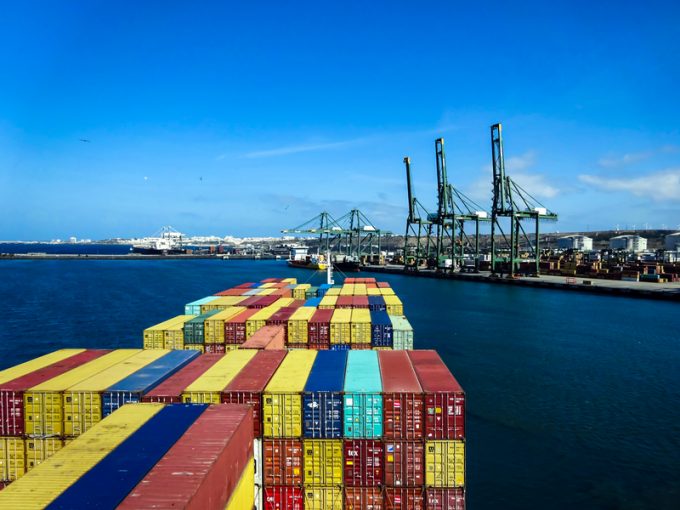Grape demand: carriers line up for a bite as South African export season begins
South Africa’s grape export season has begun, and ocean carriers are lining up for a ...
UPS: MULTI-MILLION PENALTY FOR UNFAIR EARNINGS DISCLOSUREWTC: PUNISHEDVW: UNDER PRESSUREKNIN: APAC LEADERSHIP WATCHZIM: TAKING PROFITPEP: MINOR HOLDINGS CONSOLIDATIONDHL: GREEN DEALBA: WIND OF CHANGEMAERSK: BULLISH CALLXPO: HEDGE FUNDS ENGINEF: CHOPPING BOARDWTC: NEW RECORDZIM: BALANCE SHEET IN CHECKZIM: SURGING
UPS: MULTI-MILLION PENALTY FOR UNFAIR EARNINGS DISCLOSUREWTC: PUNISHEDVW: UNDER PRESSUREKNIN: APAC LEADERSHIP WATCHZIM: TAKING PROFITPEP: MINOR HOLDINGS CONSOLIDATIONDHL: GREEN DEALBA: WIND OF CHANGEMAERSK: BULLISH CALLXPO: HEDGE FUNDS ENGINEF: CHOPPING BOARDWTC: NEW RECORDZIM: BALANCE SHEET IN CHECKZIM: SURGING

MSC has announced plans to build an inland container port in northern Portugal to connect with its deepsea hub at Sines.
The terminals will cover 200,000sq metres and offer storage capacity of 10,000 teu and will be located at Lousado, in a region which the carrier said accounted for “about 39% of the national exports and 29% of the national economy”.
The area’s main industries include textiles clothing, footwear and metallurgy, as well as medium- and hi-tech sectors such as automotive components, pharmaceuticals, machinery, precision and communication equipment and computers.
The new port will have six rail lines capable of handling 12 to 14 trains a day, and is part of the Portuguese government’s wider €4.1bn rail freight infrastructure investment campaign.
“We are very pleased to implement this new agreement, which will lead to the construction of what will be the largest dry terminal in the Iberian peninsula,” said Giuseppe Prudente, MSC’s chief logistics officer.
The facility is expected to be operational by March 2020 and will feature state-of-the-art container handling equipment.
“Using the latest-generation technology, this will be among the most modern dry terminals in the world and the answer to the logistics needs of local companies, making exports and imports easier and thus contributing to the region’s prosperity,” Mr Prudente added.
The project is being managed by MSC’s local freight subsidiary, Medway, which currently operates around 100 trains a day and claims to have a 90% share of Portuguese rail freight.
Medway also operates in Spain, where MSC has indicated it would make further investments.
Comment on this article